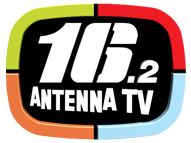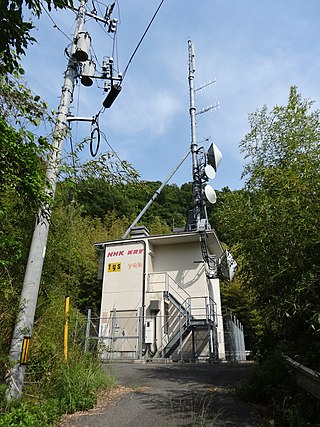Public broadcasting involves radio, television, and other electronic media outlets whose primary mission is public service. Public broadcasters receive funding from diverse sources including license fees, individual contributions, public financing, and commercial financing, and claim to avoid both political interference and commercial influence.
A non-commercial educational station is a radio station or television station that does not accept on-air advertisements, as defined in the United States by the Federal Communications Commission (FCC) and was originally intended to offer educational programming as part, or whole, of its programming. NCE stations do not pay broadcast license fees for their non-profit uses of the radio spectrum. Stations which are almost always operated as NCE include public broadcasting, community radio, and college radio, as well as many religious broadcasting stations. Nearly all non-commercial radio stations derive their support from listener support, grants and endowments, such as the Corporation for Public Broadcasting (CPB) that distributes supporting funds provided by Congress to support public radio.
KCET is a secondary PBS member television station in Los Angeles, California, United States. It is owned by the Public Media Group of Southern California alongside the market's primary PBS member, Huntington Beach–licensed KOCE-TV. The two stations share studios at The Pointe in Burbank; KCET's transmitter is located atop Mount Wilson in the San Gabriel Mountains.
Public-access television is traditionally a form of non-commercial mass media where the general public can create content television programming which is narrowcast through cable television specialty channels. Public-access television was created in the United States between 1969 and 1971 by the Federal Communications Commission (FCC), under Chairman Dean Burch, based on pioneering work and advocacy of George Stoney, Red Burns, and Sidney Dean.

WNDU-TV is a television station in South Bend, Indiana, United States, affiliated with NBC. It is owned by Gray Media alongside Elkhart-licensed Heroes & Icons affiliate WSJV. The two stations share studios on the campus of WNDU-TV's founding owner the University of Notre Dame along State Road 933 on South Bend's north side; WNDU-TV's transmitter is located southeast of the St. Joseph County Fairgrounds on the city's south side.
The mass media in the Republic of Ireland includes all the media and communications outlets of the Republic.

Near FM 90.3 FM is a BAI-licensed community media project operated by the not-for-profit media co-operative, Near Media Co-operative Society Limited.
Community television in Australia is a form of free-to-air non-commercial citizen media in which a television station is owned, operated and/or programmed by a community group to provide local programming to its broadcast area. In principle, community television is another model of facilitating media production and involvement by private citizens and can be likened to public-access television in the United States and community television in Canada.

Free Speech TV (FSTV) is an American progressive news and opinion network. It was launched in 1995 and is owned and operated by Public Communicators Incorporated, a 501(c)(3) non-profit, tax-exempt organization founded in 1974. Distributed principally by Dish Network, DirecTV, and the network's live stream at freespeech.org and on Roku, Free Speech TV has run commercial free since 1995 with support from viewers and foundations. The network claims to "amplify underrepresented voices and those working on the front lines of social, economic and environmental justice," predominantly from a progressive perspective.

Kalaallit Nunaata Radioa, also known by its abbreviation KNR, is Greenland's national public broadcasting organization.

C9TV was a local television station based in Derry, Northern Ireland. The station's licences were awarded by the ITC in 1996 and allowed the station to broadcast to Derry, Limavady, Coleraine and Strabane, although broadcasts would not begin until the night of 17 October 1999.
CRAOL, also called the Community Radio Forum of Ireland, or Community Radio Ireland, is the representative, co-ordinating, lobbying, training and support group for Irish Community Radio. Every week, across Ireland, 2000 community radio volunteers broadcasts to 170,000 people in 20 fully licensed stations and 42 aspirant stations. The organisation runs a helpline to assist in the development of community radio. CRAOL is a registered provider of FETAC Accredited training.
This article gives an overview of the media in Washington, D.C., United States. As the country's capital city, Washington has a heavy and historic media presence. Numerous of the country's main news outlets have either their headquarters in the Washington area or major offices in the area. Additionally, numerous local media organizations as well as international news companies have Washington correspondents that cover American political, cultural, and diplomatic news from the city.

A broadcast relay station, also known as a satellite station, relay transmitter, broadcast translator (U.S.), re-broadcaster (Canada), repeater or complementary station (Mexico), is a broadcast transmitter which repeats the signal of a radio or television station to an area not covered by the originating station.
NVTV, also known as Northern Visions Television, is a local community television station based in the city of Belfast. It is operated by the Northern Visions media and arts project, and although some staff are employed by the station, most involved are volunteers. NVTV is now the only local community station in Northern Ireland.

BBC Alba is a Scottish Gaelic-language free-to-air public broadcast television channel jointly owned by the BBC and MG Alba. The channel was launched on 19 September 2008 and is on-air for up to seven hours a day. The name Alba is the Scottish Gaelic name for Scotland. The station is unique in that it is the first channel to be delivered under a BBC licence by a partnership and was also the first multi-genre channel to come entirely from Scotland with almost all of its programmes made in Scotland.
In the broadcasting industry, a network affiliate or affiliated station is a local broadcaster, owned by a company other than the owner of the network, which carries some or all of the lineup of television programs or radio programs of a television or radio network. This distinguishes such a television or radio station from an owned-and-operated station (O&O), which is owned by the parent network.

Cape Town TV is a community television channel that broadcasts in Cape Town, South Africa. It launched in September 2008 with a one-year, "temporary" license and thereafter won another such license in September 2009. It is a non-profit organisation that is licensed as a community broadcaster in terms of South Africa's Electronic Communications Act.
Community television is a form of mass media in which a television station is owned, operated or programmed by a community group to provide television programs of local interest known as local programming.

Cork Community Television (CCTv) is a community access television station on Virgin Media Ireland channel 803, broadcasting programmes made by, about and for Cork communities.








